From rock royalty to actual royalty, Coach House have become the go-to destination for anyone in the business of sourcing or restoring the world’s finest pianos
“I love pianos with a story,” says Coach House founder Nick Rusling. “There are pianos here you couldn’t put a price on.”
Indeed, among the many treasures in Coach House’s iconic London showroom is a Steinway Model A that is probably the most valuable piano in the world. Responsible for a sizeable chunk of music history, it’s been played by artists including Amy Winehouse, Kanye West, Paul McCartney and Pink Floyd on some of their most seminal recordings at Abbey Road Studios.
What really impresses, however, is that it’s far from the only noteworthy instrument in the room. Nearly every piano here has a tale to tell; each has a beauty and inner life that transcends their roles as mere instruments – and you start to get the first glimmerings of the excitement that has fuelled Rusling throughout his life.
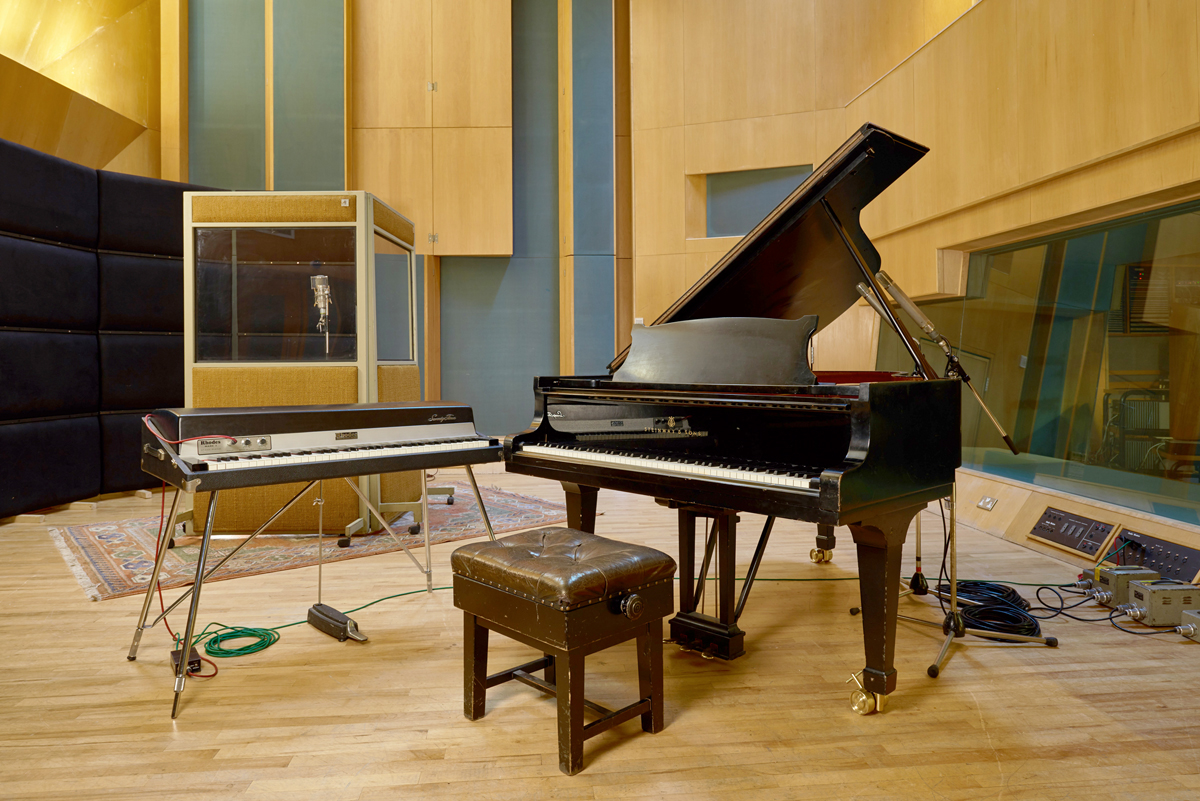
“I’ve had people sitting here with tears streaming down their face as they’re playing,” he says, sitting at a rare Bösendorfer Cocteau – the last of only 12 ever made. “It’s such an emotional piano – and buying a piano is an emotional purchase.”
I’ve had people sitting here with tears streaming down their face as they’re playing.
Nick Rusling, Coach House founder
The connection stretches back to the family piano at home in Wales, where Rusling grew up. “Traditionally, the piano was the focal point of the family. It definitely was in our family – it represented all the good times.”
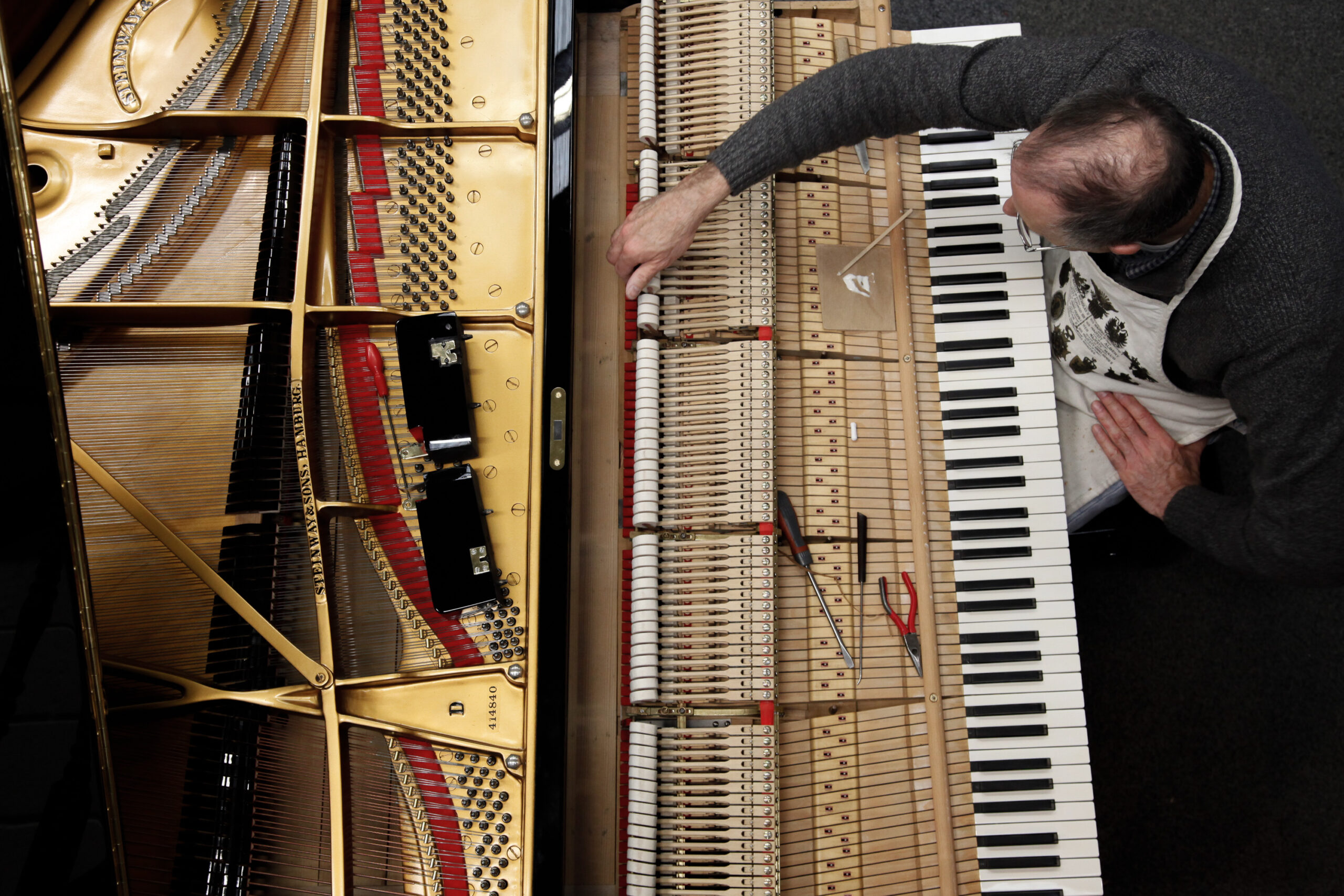
Pianos still exert this effect. Whether from physical beauty or a kind of collective folk memory, they seem to create a special aura in a room. The renowned interior designer Kathryn Ireland tells us: “I always say no house is a home unless it’s got a piano.” Rusling agrees: “Everybody loves the piano – they are an essential part of the home and of people’s lives – of bringing people together.”
It wasn’t, however, the early piano lessons that lit a fire in the young Rusling – it was the piano itself: the resonance, the cabinetry, the exquisite workmanship. This led to a study of the art of French polish, and from there to a dealership 30 years ago in a historic coach house in Carmarthen Road, Wales (and such is their fame in musical circles that Requiem composer Sir Karl Jenkins recently wrote Down Carmarthen Road as a thank you to Rusling). The firm now retains their Swansea base alongside operations centres, restoration workshops and their 5,000-square-foot showroom in London – in the landmark former Talisman showroom of Ken Bolan.
It must be noted that it is quite a showroom. Pianos of historic importance are framed with baroque mirrors and stunning art objects. The Bösendorfer Hall hangs with Viennese chandeliers and houses a collection of rare Bösendorfers that in itself is enormously impressive, yet here is just one part of a constellation of magnificent spaces.
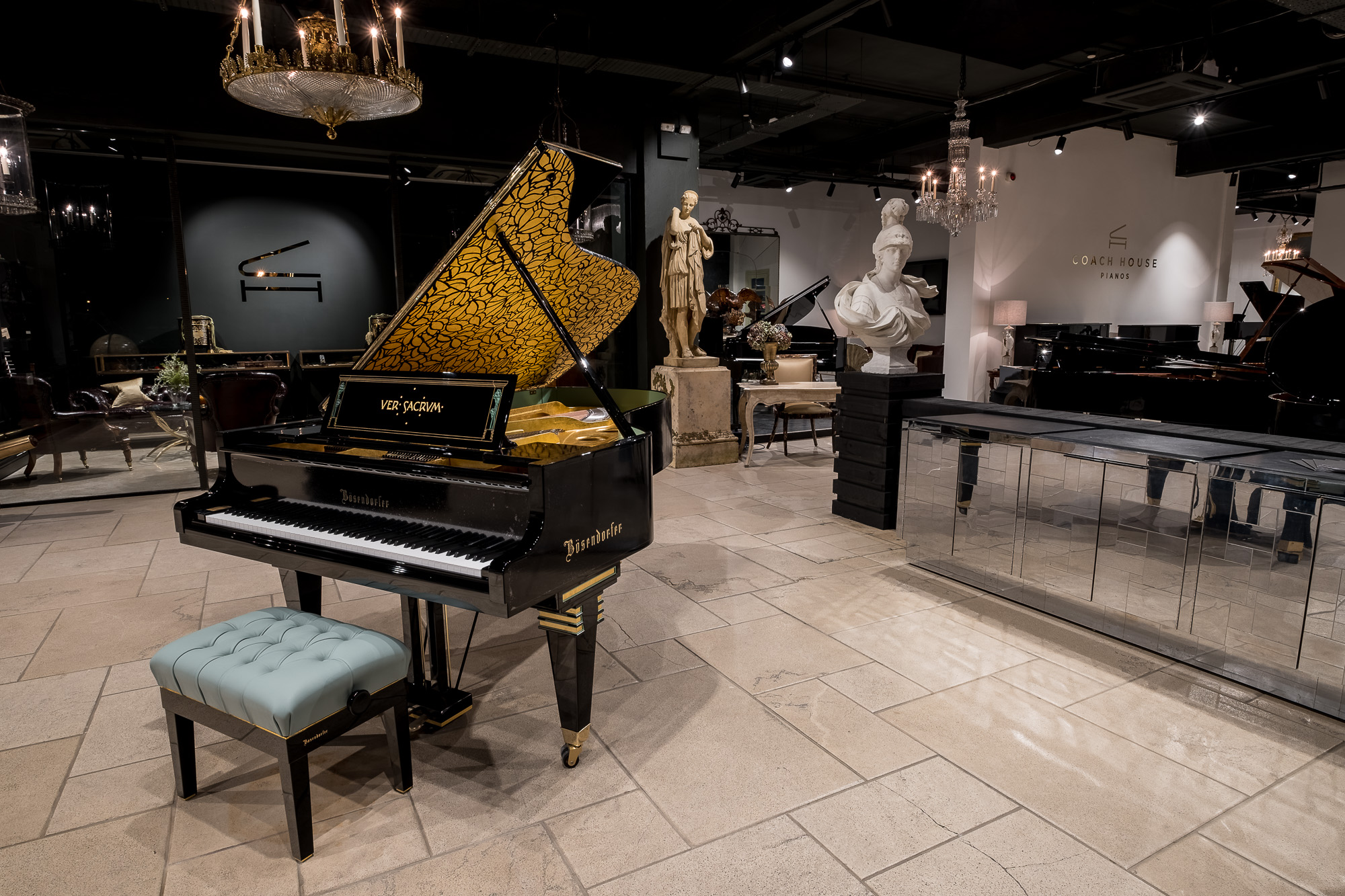
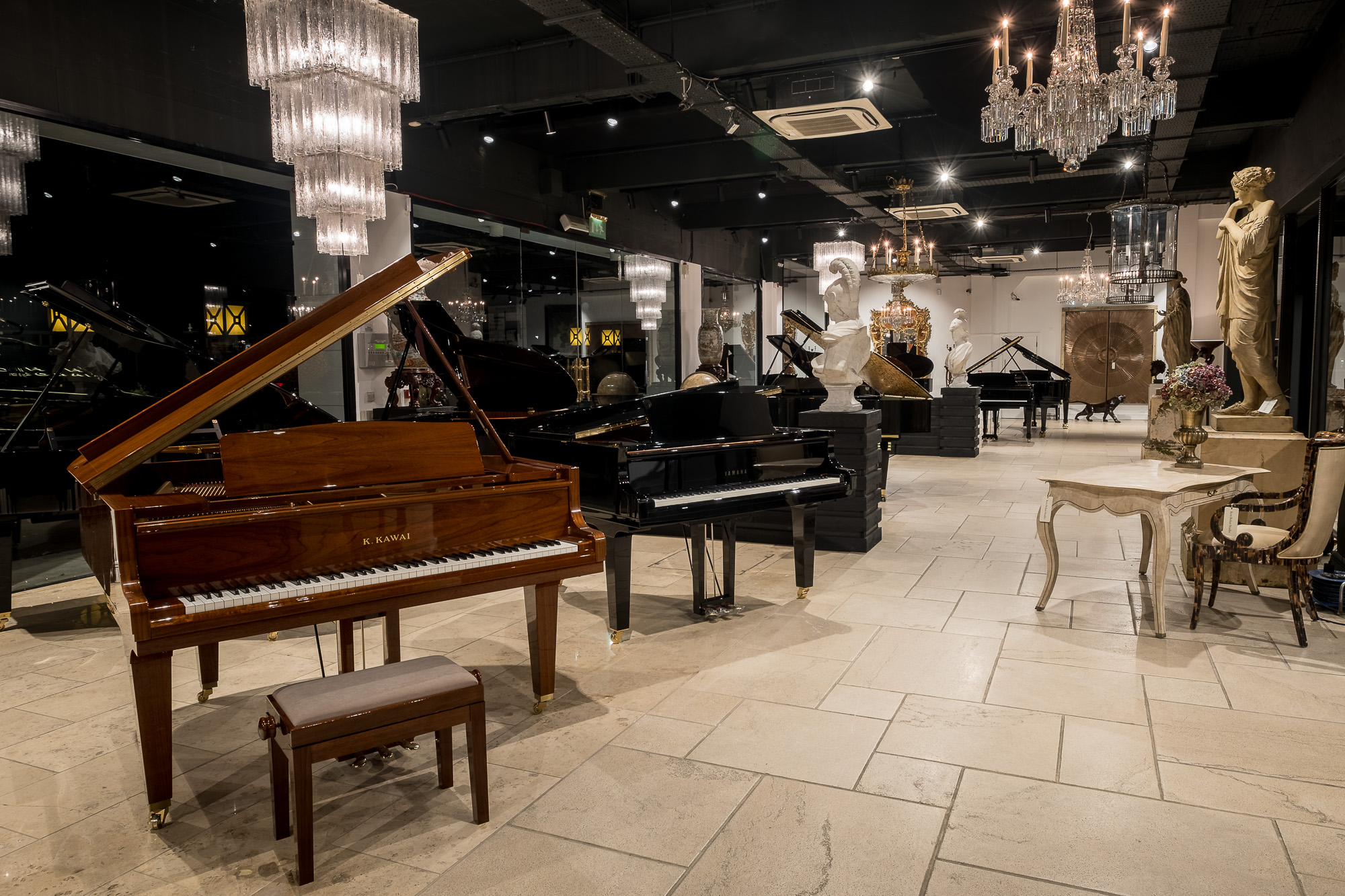
“We are a house of brands – we don’t have any fixed thinking on any particular brand,” says Rusling – underlining a key difference to most brand-specific piano stockists. We alight at one such brand which is perhaps less familiar: Sauter.
“Sauter is up with Steinway and Bösendorfer in the top echelon of piano makers,” says Rusling. “When I researched the company [upon being asked to become their exclusive UK partner], I learned that it was actually the oldest piano company in the world that still exists – established in 1819. It was a wonderful discovery. Sauter have a direct link to Beethoven: Streicher, Beethoven’s piano-builder, trained Johan Grimm, the well-known piano-maker – and it was Grimm who trained Sauter. There’s still a sixth-generation Sauter in the factory now – so the lineage continues to the present day.”
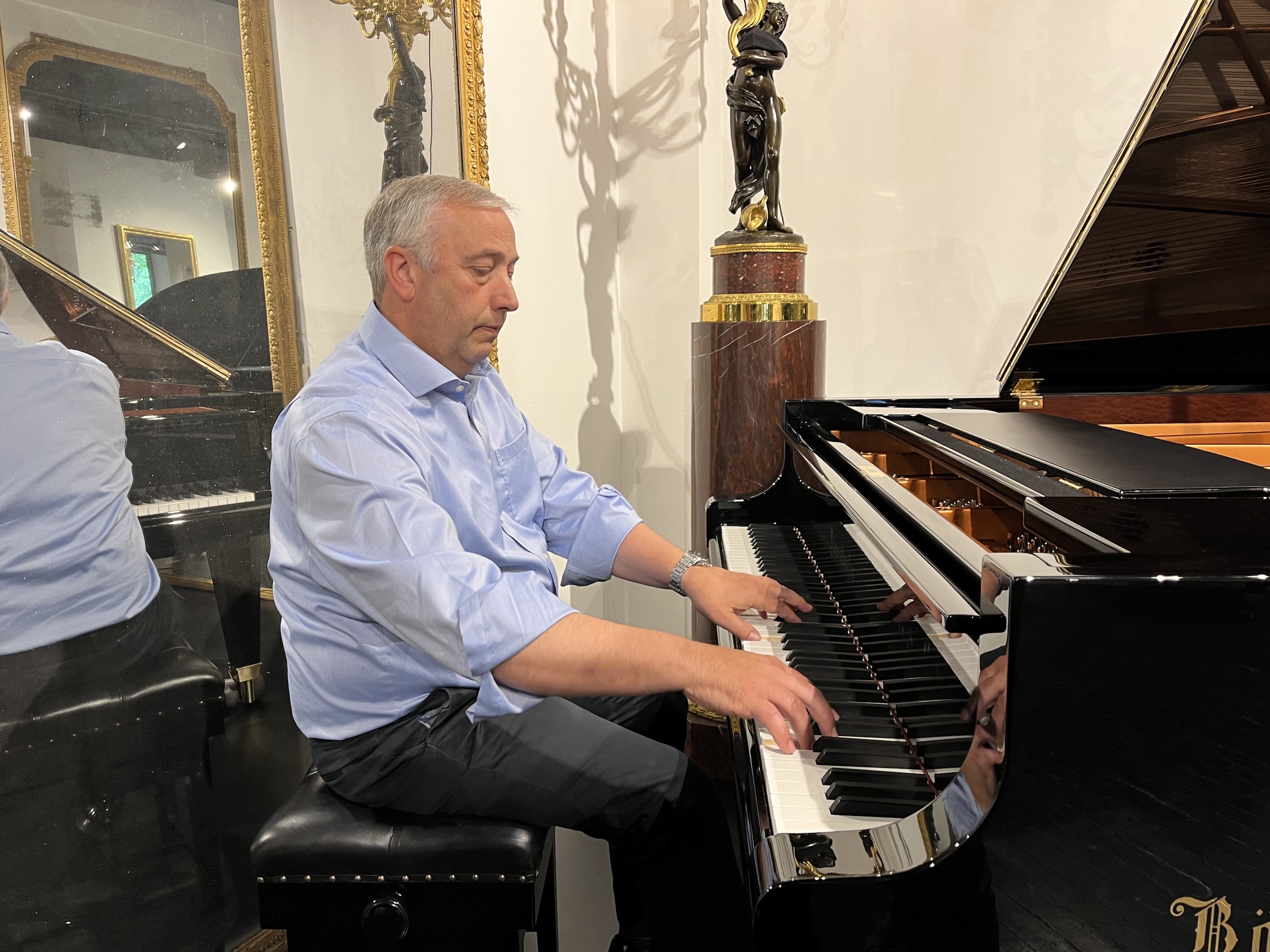
And of his preference between the two goliaths of first-division pianos – Steinway and Bösendorfer? “To get it right, you’d have one of each. I’m not being fanciful – it’s because they’re so different that it’s like a dog and a cat.”
To emphasise this, Rusling sits at a Bösendorfer, plays a chord and marvels at the sustain (he claims their head restorer measured an incredible four minutes of sound from a single key-stoke). “The whole concept of a Bösendorfer is that it’s like a giant voice box – a combination of honeycomb chambers in the cabinet, which is a giant resonator. What happens when you play is that the sound travels across the soundboard and the whole cabinet comes to life – and you can actually feel the music in your fingers. That’s why I think it’s the most enjoyable piano for a home – whereas the Steinway excels on the concert stage. The Steinway concert grand is powerful – it carries across and it’s faultless to play. But Bösendorfer is the most beautiful from the point of view of the joy of playing – it’s so rewarding.”
I love pianos with a story. There are pianos here you couldn’t put a price on.
Nick Rusling
Equally rewarding is listening to the passion with which Rusling describes current and past pianos – the piano that Mike Oldfield composed Tubular Bells on, or the one on which Gerry Rafferty wrote Baker Street. Rusling runs his hand across the flawless French polish on a particularly fine Steinway grand piano. “This was built around the turn of the last century. When it came to us, it was unplayable. The keyboard was literally like the waves of the sea.”
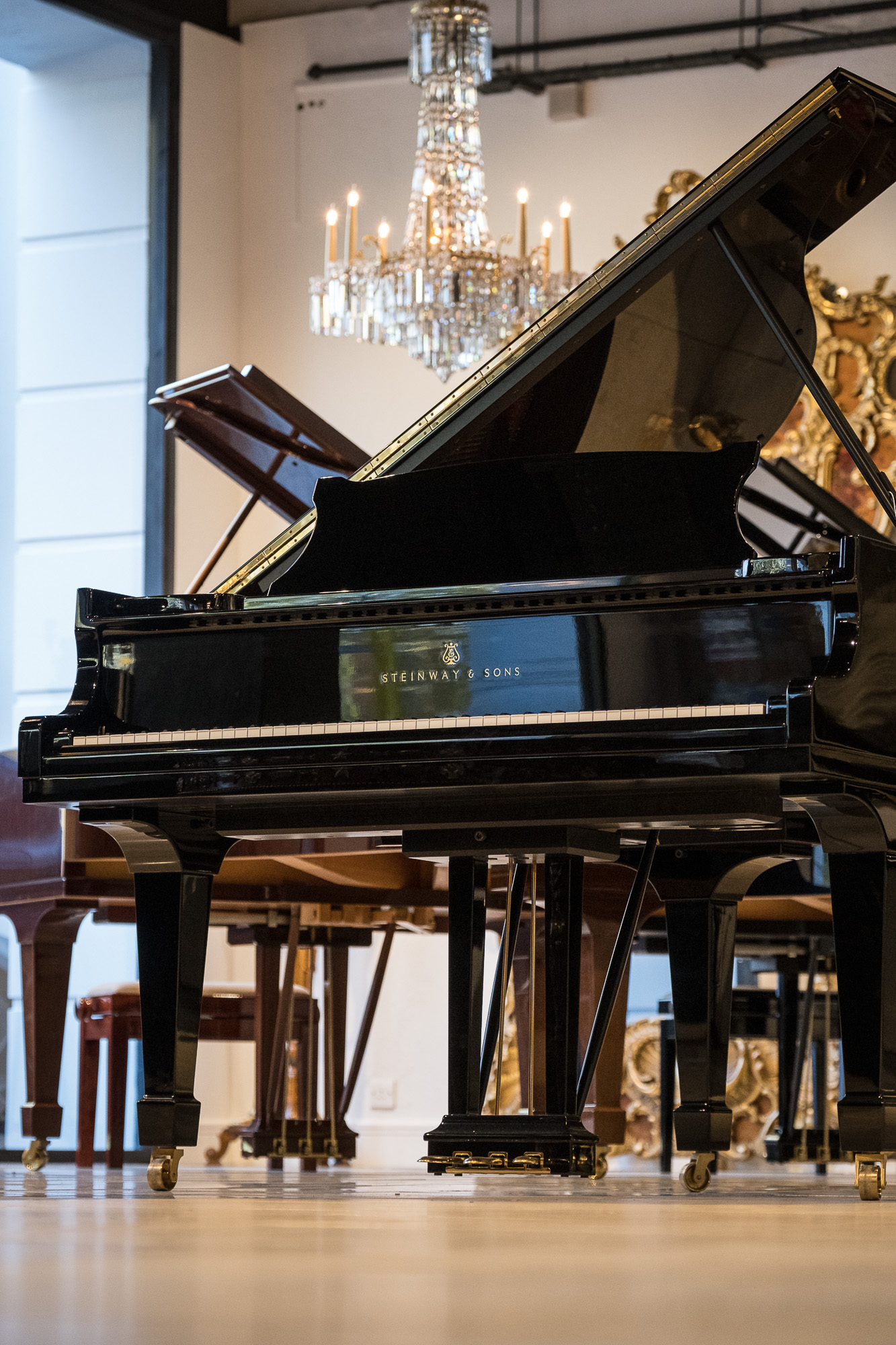
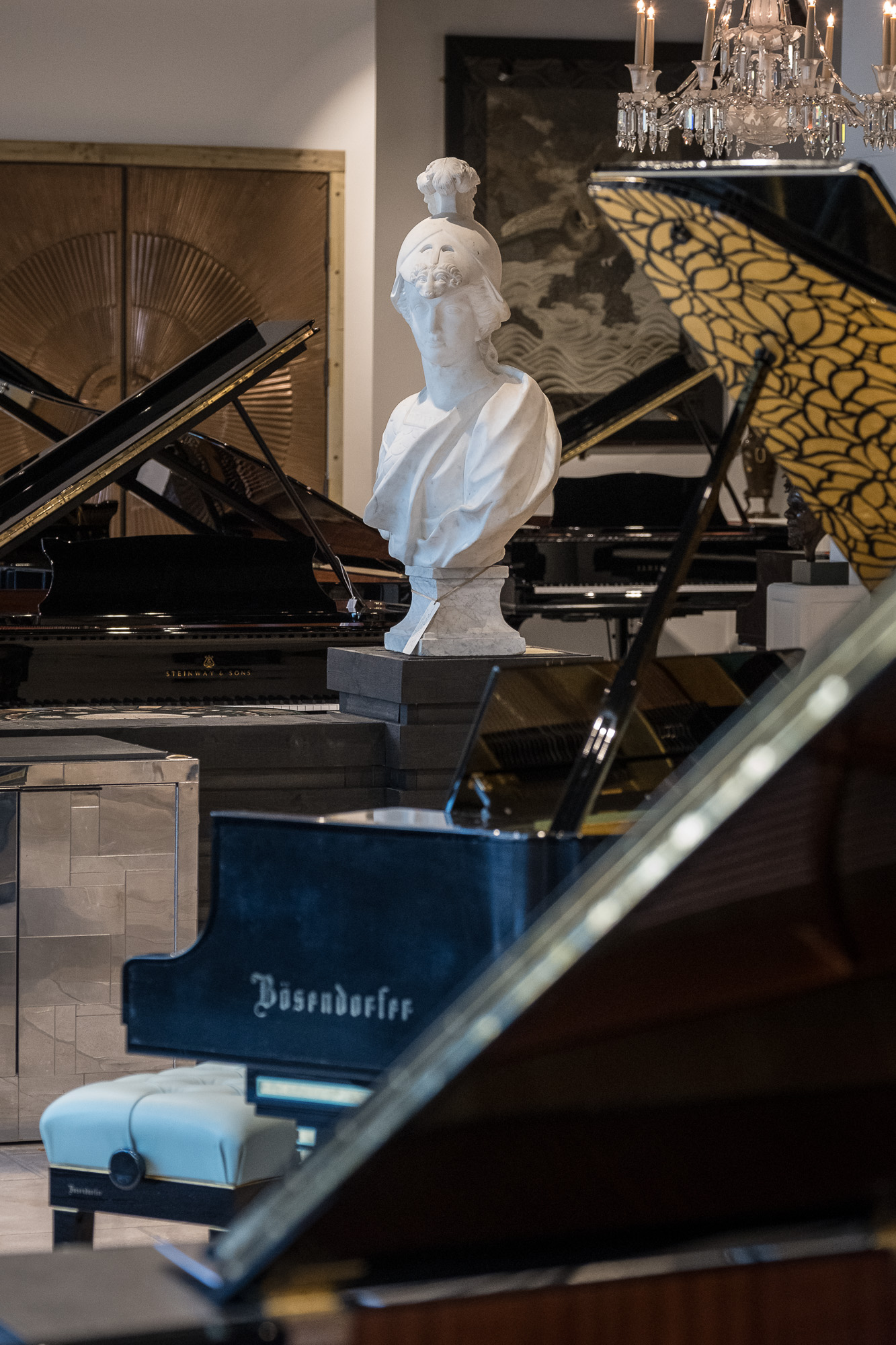
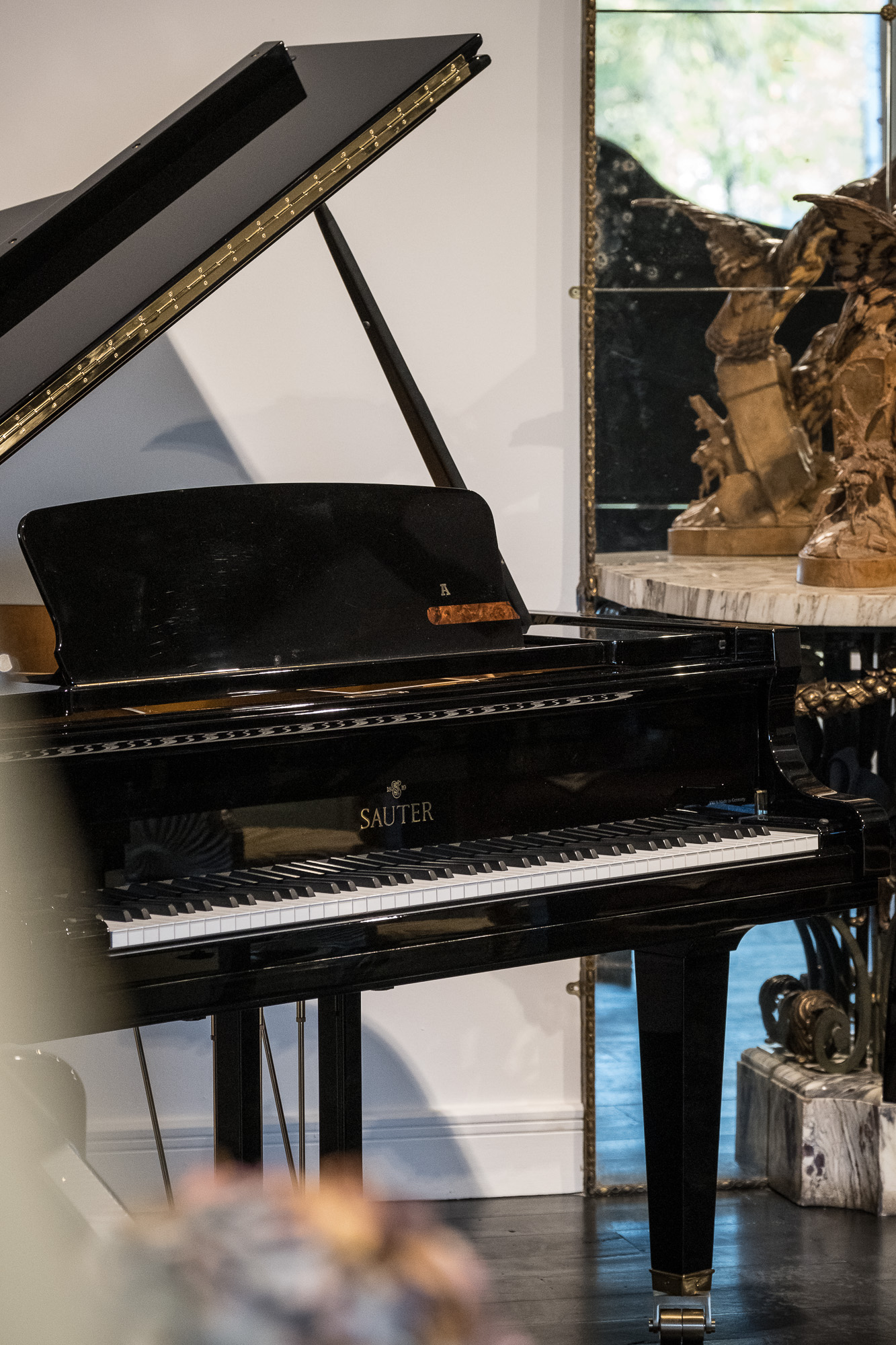
Upon restoring it, they discovered correspondence that detailed its history. Bought in 1898 from Steinway, it had resided with Prince Arthur, Duke of Connaught (Queen Victoria’s son), who went on to become Governor General of Canada. Further correspondence shows he sold it back to Steinway in 1928, and that a Dr Kluvig bought it in 1939. “He was stationed overseas as the war broke out, and there are letters showing Steinway chasing him across the world for payment!”
Rusling expands on the technical details of the piano’s restoration, and it’s clear this detail matters greatly to Coach House. “We restore pianos and we restore them properly. Take this Steinway, for example: if we couldn’t restore it with all the genuine, correct parts from the Hamburg factory, we wouldn’t restore it, because that authenticity is so important to us. We’re very fussy about our market – our passion is for trust and integrity. And there’s something about the originality. We’ve carried that forward – we want the piano as it was built.”
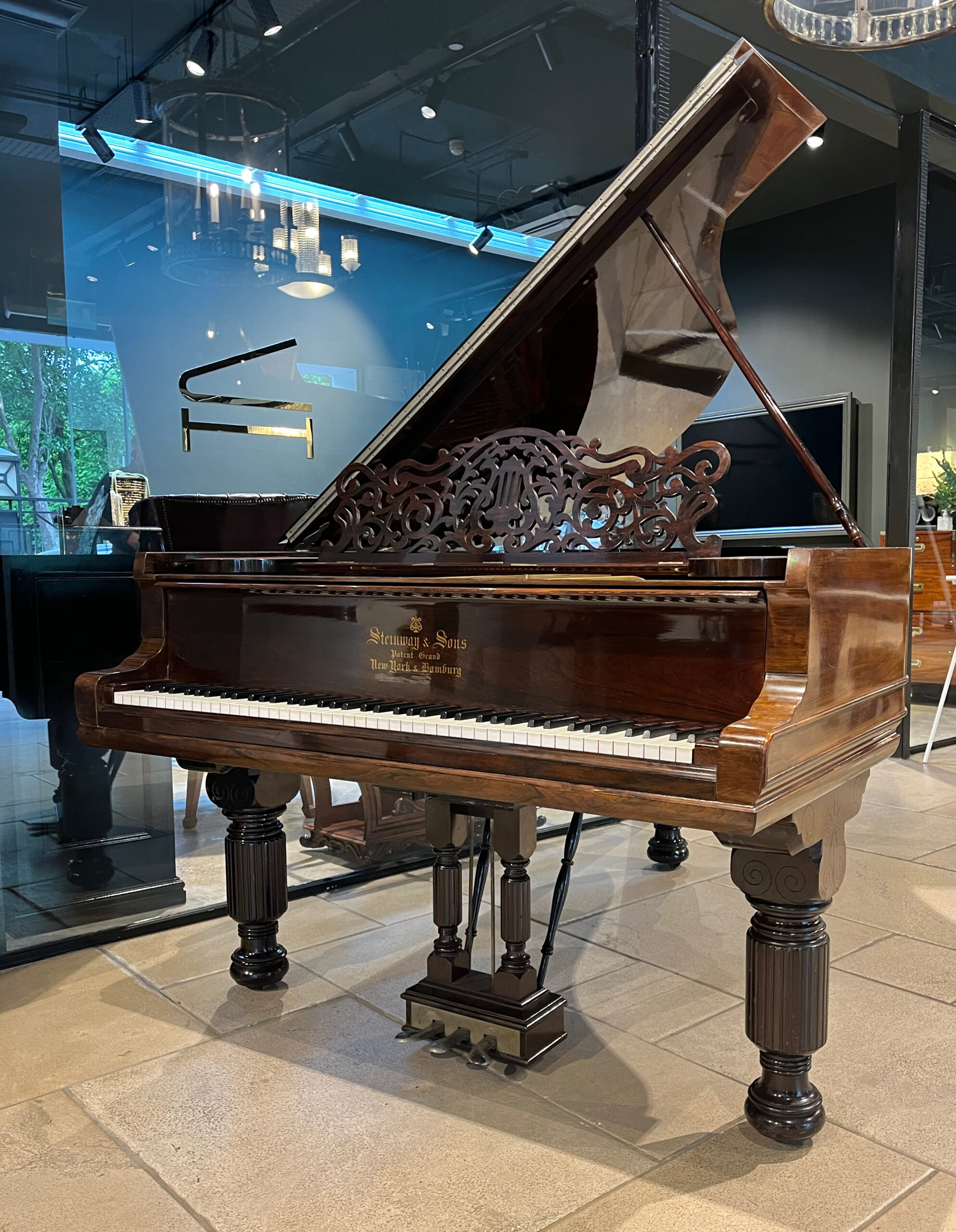
And what of pianos as an investment? “If you buy wisely, with our advice, you will get a very good return on your investment. When we sell pianos, they continue to rise in value. We see this all the time – pianos that we sold 20 years ago, and people selling them back to us at a handsome profit. A concert Steinway grand piano worth £30,000 in the 1990s could be worth around £160,000 now.” He adds: “It’s nice to know that your money is safe – but why would you want to sell it?” It’s no rhetorical flourish: it really is hard to imagine letting one of these masterpieces go once if you’re lucky enough to be their custodian.
As we leave, we pass the Abbey Road Piano again. “It is for sale,” he says, placing a protective hand on it that suggests he’d be reluctant to let it go. “But how do you put a price on it?”
Effect Magazine is brought to you by Effetto



